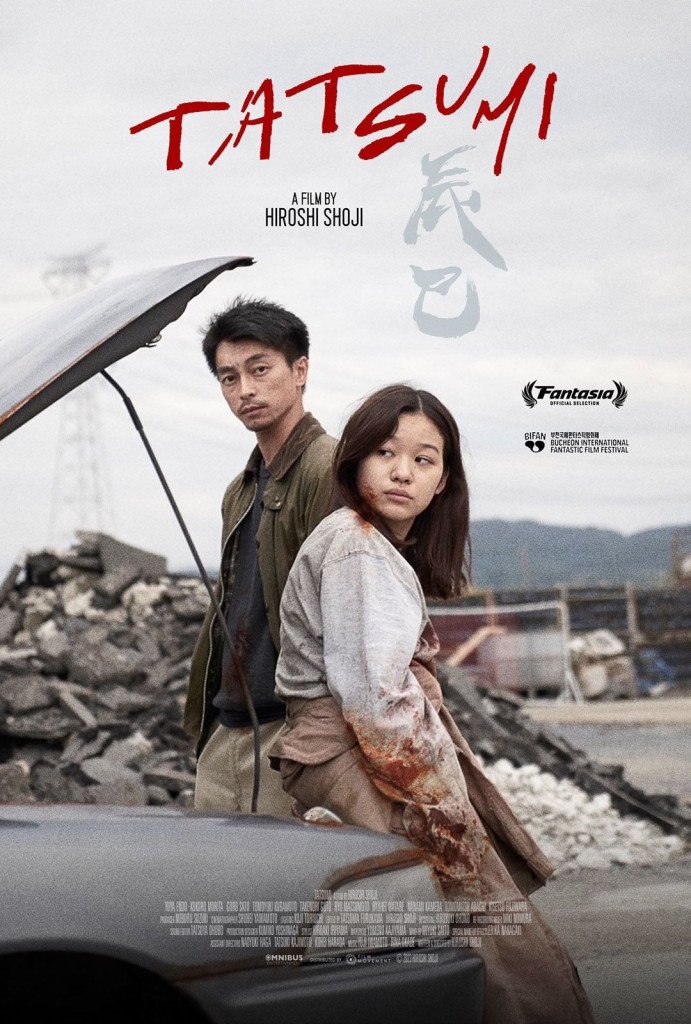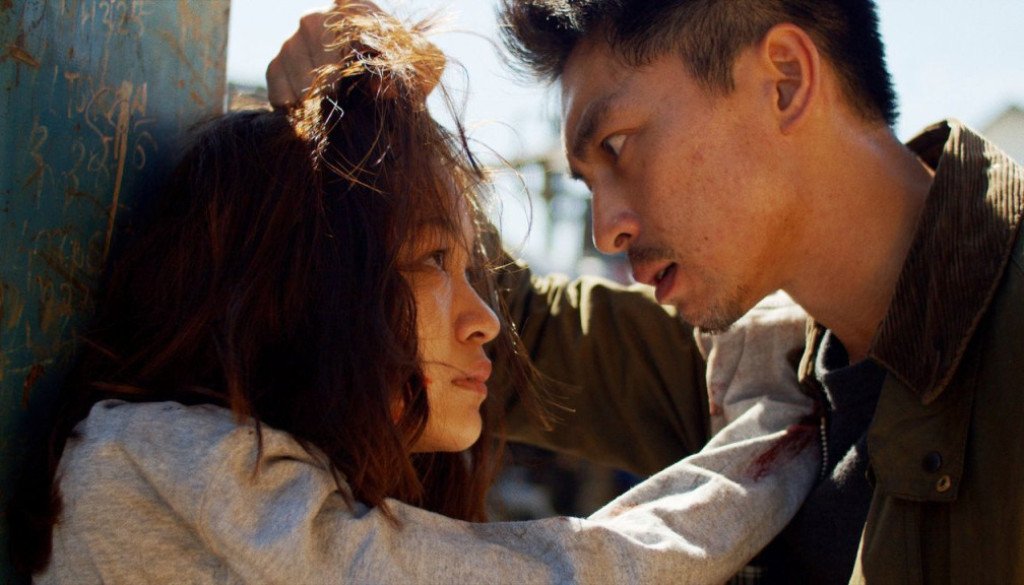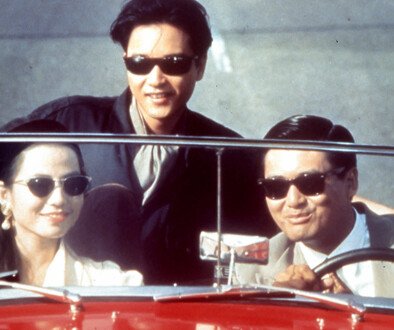TATSUMI Review: An Intense Eye-For-An-Eye Revenge Thriller With A Scenic View
Tatsumi arrives on VOD and Digital on November 14 from Omnibus Entertainment
I tuned out a little bit midway while watching Hiroshi Shoji’s crime thriller, Tatsumi, around midway into the film due to some slight pacing issues. Thankfully, the film is bolstered in large part by some intense imagery and performances to match, and despite a few thematic slips along the way, still holds up by the end.
Make no mistake though. This one gets on the gory side of things soon enough. Prefacing Shoji’s latest ahead of opening credits is a dramatic unfolding between brothers that sets up our tale of Tatsumi (Yuya Endo) seaside fisherman who also disposes bodies for the local yakuza for a living. It’s a pretty small world too. His ex-girlfriend, Kyoko (Nanami), is also dating someone who happens to be indebted to a gangster. Kyoko’s younger sister, Aoi (Kokoro Morita), is a mechanic whose brash tomboyish behavior helps her cope with her often rough environment.
It’s a pretty hard world these characters live in, and it only gets harder when Kyoko ends up a casualty to her boyfriend’s misgivings when he’s confronted by a pair of yakuza enforcers, including the ever intractable Ryuji (Tomoyuki Kuramoto). Making matters worse is when after making up for an infraction with another gangster with Tatsumi’s help only to arrive to the scene of Ryuji’s crime do he and Aoi end up bearing witness to it and barely escaping with their lives.
Therein lies another impediment for Tatsumi as underworld rules and brotherhood codes compel him to obey his yakuza family and bring Aoi to be dealt with accordingly. The truth, however, is yet to be revealed while Aoi’s own life hangs in the balance following a desperate act of vengeance of her own, with Tatsumi forced to come to terms with the reality behind Kyoko’s death as it may have been less than a mere careless act on her murderer’s part.
The broader central theme of revenge is clear cut in Tatsumi. Redemption sort of takes a back seat but edges forward a little bit as we follow Tatsumi and Aoi’s journey of survival. Tatsumi’s afflictions are kept largely quiet and personal until much later in the film when he’s tested a little more in the wake of Aoi’s own wrath.
The writing sort of takes on a life of its own when it comes to Aoi’s character. You kind of get the feeling that Shoji didn’t know where to go with Aoi beyond her penchant for communicating in the only other language she knows, which is spitting. It’s kind of hilarious to think about, but you are left hoping for a little more depth when it comes to Aoi and her personality, and thankfully, Shoji doesn’t disappoint here, and neither does Morita for that matter, as her acting really holds up.

The same goes for Endo, whose own evolution similarly takes time to occur following the film’s prologue. You’re kind of left waiting for the other shoe to drop when it comes to his character and how tested he is with the extent of violence committed by his colleagues, and for that matter, how long before he himself snaps, which really doesn’t happen. Tatsumi is cool as ice for the most part, if not complacent or numbed by his atmosphere – often left in a haze of his own thoughts or just plain tired. Either way, that cool hand of his does find its use along the way, particularly in terms of looking after Aoi who wants nothing more than Ryuji’s head on a pike.
One of the better and more intriguing aspects of Tatsumi is the friendship between our titular protagonist and his fellow shipmate who goes by “Skipper,” played by Goro Sato. Theirs are two of the more reasonable players in this story, which makes for an intersting intro to the events that occur. Co-star Kuramoto comes off as the antagonistic force to be met head on in this regard as the unhinged Ryuji. His character is psychotic and loudly evil, which serves to build on the mystery somewhat as the film moves forward and secrets are later revealed.
The film does lag a little bit in one area of continuity when Tatsumi severs a corpse’s ear off early on and one overhead shot a few minutes later shows that same ear somehow magically attached. Things like this might take you out of the experience if you tend to be persnickety with details, and this isn’t the first film in which things like this happen. Hopefully Shoji noticed and can prevent this kind of a slip in his next one.
Beyond these, Tatsumi lends a surprisingly entertaining crime flick to the masses. Shoji’s atmospheric blend of the quiet seaside town landscape and interior murky, urban and junkyard millieu contribute to a personifying dissonance that conveys the kind of complexity that sits symbolic with who Tatsumi is and his frame of mind, and an idea he secretly wants to live up to before it’s too late. There’s a beauty to the ugly here, even amid the overkill and the filmic lagging at times, making Tatsumi a modestly watchable thriller for fans of gangster and crime flicks.
Native New Yorker. Been writing for a long time now, and I enjoy what I do. Be nice to me!





